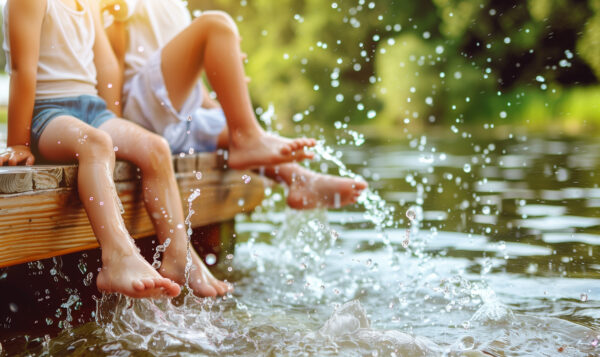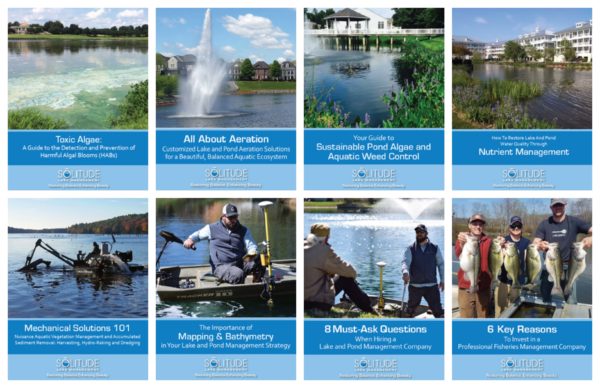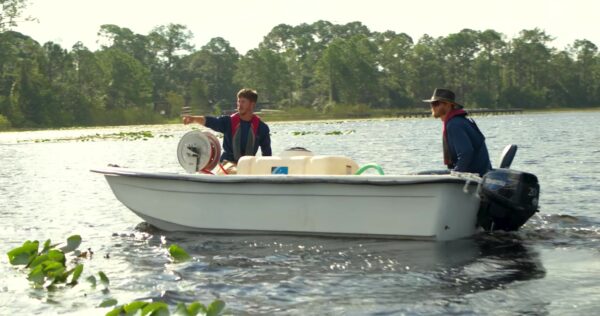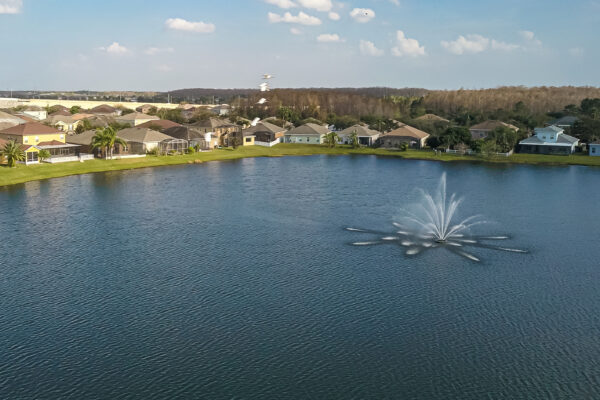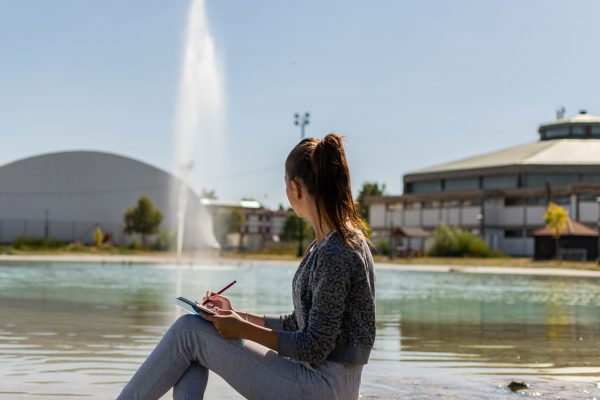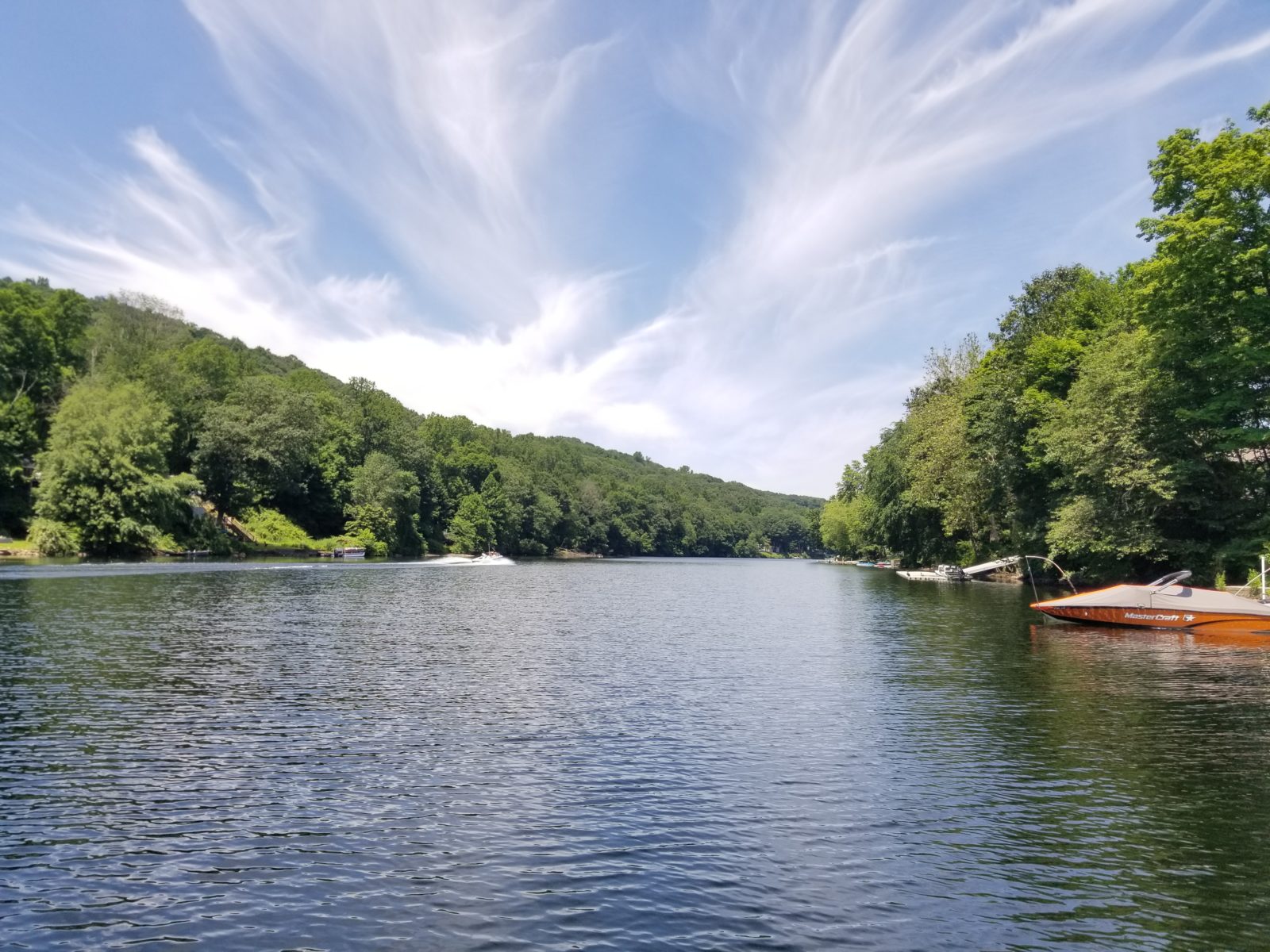Mitigating Nutrient Loading in Your Aquatic System
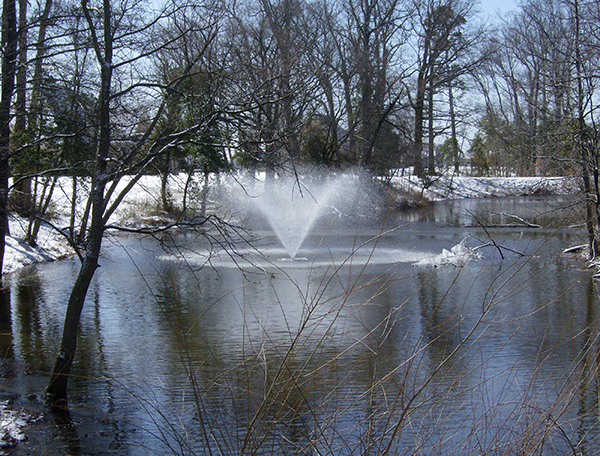 Eutrophication is the term applied to the natural process of aging in lakes and other freshwater and brackish systems. Human activities can greatly accelerate eutrophication by increasing the rate at which nutrients and organic substances enter aquatic ecosystems from their surrounding watersheds. Agricultural runoff, urban runoff, leaking septic systems, sewage discharges, eroded stream banks, and similar sources can increase the flow of nutrients and organic substances into aquatic systems. These anthropogenic influences can cause pond algae blooms or the overgrowth of aquatic weeds. While these blooms do not take place during the winter due to reduced water temperature, the body of water can still store limiting nutrients such as nitrogen and phosphorous that will fuel the springtime algal growth spurt.
Eutrophication is the term applied to the natural process of aging in lakes and other freshwater and brackish systems. Human activities can greatly accelerate eutrophication by increasing the rate at which nutrients and organic substances enter aquatic ecosystems from their surrounding watersheds. Agricultural runoff, urban runoff, leaking septic systems, sewage discharges, eroded stream banks, and similar sources can increase the flow of nutrients and organic substances into aquatic systems. These anthropogenic influences can cause pond algae blooms or the overgrowth of aquatic weeds. While these blooms do not take place during the winter due to reduced water temperature, the body of water can still store limiting nutrients such as nitrogen and phosphorous that will fuel the springtime algal growth spurt.
As a resident or property manager there are several things that can be done to mitigate these effects on your lake or pond. This time of year leaf litter contributes significantly to the nutrient loading in many neighborhood ponds. Keeping fallen leaves out of your waterbody can significantly reduce the organic material stored in the system. Composting and recycling yard wastes provides an environmentally responsible alternative to allowing organic materials to be washed into storm water systems. Nothing is more important than minimizing the use of fertilizer throughout the community and surrounding watershed. As they say, an ounce of prevention is worth a pound of cure, so take these small steps to help with the management of your lake in the upcoming year.
Winter Aeration to Prevent Spring Problems
Local ponds and lakes stratify with cooler water to the bottom and warmer to the top during the warmer months. As the weather in Virginia starts to cool so do the local ponds and lakes. As the weather and ponds cool, fall turnover will take place. This is when the top temperature becomes the same as the bottom causing thorough mixing. As winter sets in, these bodies of water will start to stratify again but in the opposite way. Inverse stratification will occur as the top layer becomes cooler than the bottom. Mixing will not occur because water reaches max density at 39’F (4’C). This is when proper pond aeration system can be very important.
Just like summer, proper mixing will be needed to make sure that stratification is broken down and mixing can occur. Aeration running during the winter will help to keep ice from forming on the top by having moving water. This moving water will help the dissolved oxygen levels to remain sufficient. In the event of heavy freezing, winter fish kills can take place by ice forming thick on the top of the pond and blocking out sunlight. This causes the vegetation to die off and use up all dissolved oxygen leading to fish kill. Aeration is very important no matter what the season!
Kevin Tucker is the president of SOLitude Lake Management. Since 1998, SOLitude Lake Management has been committed to providing full service lake and pond management services that improve water quality, preserve natural resources, and reduce our environmental footprint. Services are available throughout the Eastern United States. Fisheries management consulting and aquatic products are available nationwide. Learn more about SOLitude Lake Management and purchase products at www.solitudelakemanagement.com.
Contact the experts at 888-480-5253 for all of your lake, pond and fisheries management needs.

